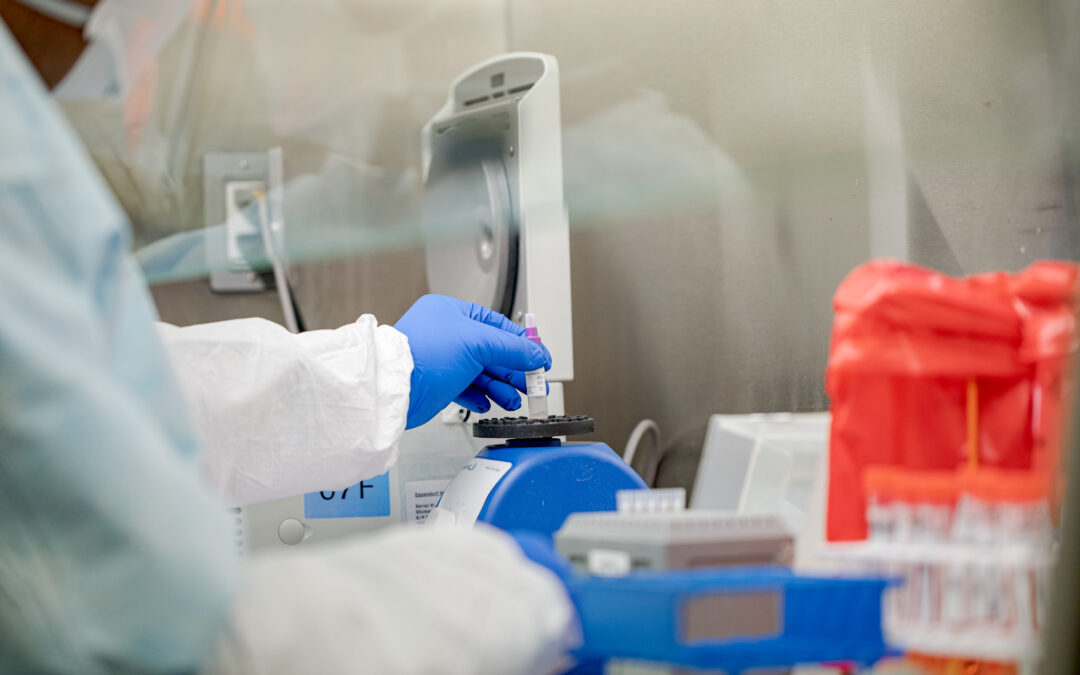Polish researchers have identified a gene variant that they say can double the risk of an individual developing severe forms of COVID-19 or of dying from the virus. They estimate that almost 10% of people from Europe and over a quarter from South Asia carry the variant.
The discovery, which comes from 18 months of research into 1,500 COVID-19 patients led by the Medical University of Białystok, could, along with other factors, help early identification of those who are most at risk from coronavirus.
“From the beginning of the pandemic, we have been trying to understand why, even among people of similar age, some are infected asymptomatically while others fight for their lives,” said a spokesman for the university. “Thanks to [this] research, we are getting closer to understanding this phenomenon.”
Among the 16 countries to have reported over 100,000 Covid deaths, Poland has the third highest number of deaths in proportion to population, behind only Peru and Brazil.
You can explore the data here: https://t.co/4mwG4tcOJk pic.twitter.com/Lj8fMy9qHX
— Notes from Poland 🇵🇱 (@notesfrompoland) January 11, 2022
The researchers found that the gene variant is the fourth most important risk factor – after age, obesity and sex (with males having higher risk) – determining a severe or fatal outcome of coronavirus infection. According to their results, it is an even more important factor than co-existing diseases.
They estimate that the gene element might be carried by around 14% of people in Poland and around 8-9% from across Europe. Significantly, the variant is even more common in South Asia, where up to 27% of the population has it.
The head of the research group from Bialystok, Marcin Moniuszko, pointed out that the discrepancy between the frequency of this gene type in populations is proof that research results from other countries should not be automatically transferred across national contexts.
“We have managed to uncover a very important risk factor,” said health minister Adam Niedzielski during a press conference today in Białystok. “A consequence of this discovery will be the creation of an appropriate genetic test, which will swiftly determine if a patient carries a higher risk.”
Such tests could be produced within months, according to the state Medical Research Agency (ABM) which, along with the health ministry, financed the study.
“It’s a very significant step in battling the pandemic,” stated ABM’s head, Radosław Sierpiński, quoted by the Polish Press Agency (PAP).
Main image credit: Governor Tom Wolf/Flickr (under CC BY 2.0)

Agnieszka Wądołowska is deputy editor-in-chief of Notes from Poland. She is a member of the European Press Prize’s preparatory committee. She was 2022 Fellow at the Entrepreneurial Journalism Creators Program at City University of New York. In 2024, she graduated from the Advanced Leadership Programme for Top Talents at the Center for Leadership. She has previously contributed to Gazeta Wyborcza, Wysokie Obcasy and Duży Format.




















